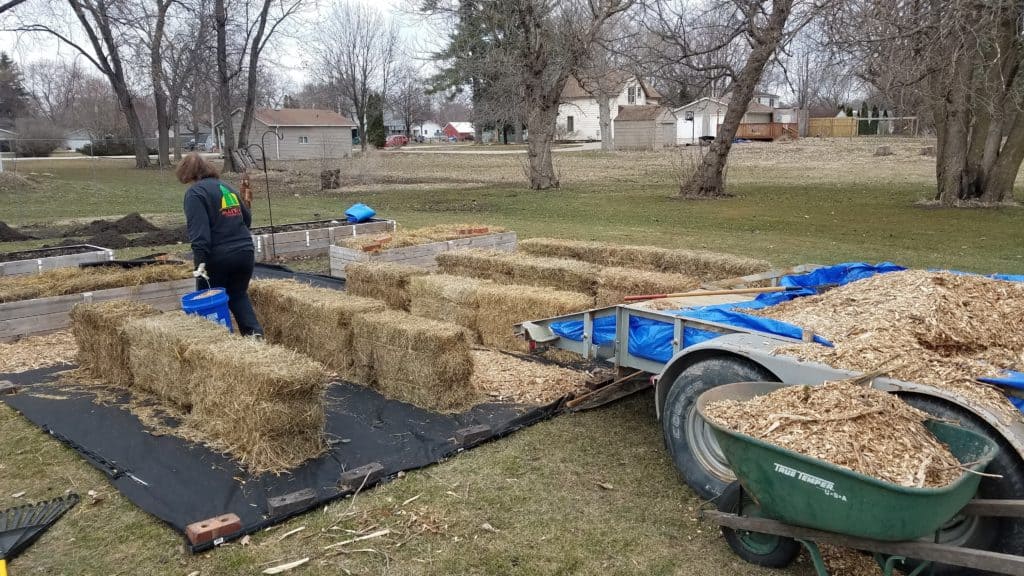Essential Organic Fertilizers for Successful Straw Bale Gardening. Discover essential organic fertilizers To boost your straw bale gardening success. Simple tips & tricks To grow healthy plants naturally—let’s dig in!
What is Essential Organic Fertilizers for Successful Straw Bale Gardening & how does it work?
Essential organic fertilizers nurture plant growth. They enhance soil structure & improve nutrient availability. Using organic materials, these fertilizers support microorganisms. Microbes break down nutrients, making them accessible. This process aids in healthy plant development.
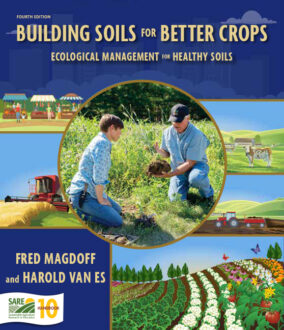
Brief history of Essential Organic Fertilizers for Successful Straw Bale Gardening
Agricultural practices have evolved over centuries. Early farmers depended on natural sources like animal manure. Organic matter kept soil fertile & productive. Modern gardening embraced these methods again. Techniques involve composting & green manures, leading To sustainable practices.
How To implement Essential Organic Fertilizers for Successful Straw Bale Gardening effectively
Start by assessing soil needs. Conduct a soil test for nutrient levels. Incorporate compost into bales for nutrient balance. Use well-rotted manure for extra benefits. Apply a balanced organic fertilizer regularly. Maintain moisture levels within bales. This encourages nutrient absorption.
Key benefits of using Essential Organic Fertilizers for Successful Straw Bale Gardening
Organic fertilizers improve soil health. They enhance microbial activity in gardens. Nutrients from organic sources benefit plants greatly. These fertilizers also reduce chemical runoff. Sustainable practices support environmental health. Healthier crops provide better yields & flavors.
Challenges with Essential Organic Fertilizers for Successful Straw Bale Gardening & potential solutions
Some challenges arise when using organic fertilizers. Availability of quality materials may vary. Timing of application can affect results too. Address these issues by exploring local sources. Utilize various organic inputs for balanced nutrition. Regular monitoring ensures healthy plant growth.
Future of Essential Organic Fertilizers for Successful Straw Bale Gardening
Trends indicate a growing interest in sustainability. Innovations will refine organic practices further. Enhanced techniques promise better nutrient management. Research might uncover new organic materials, boosting effectiveness. This shift supports healthier gardens & environments for years.
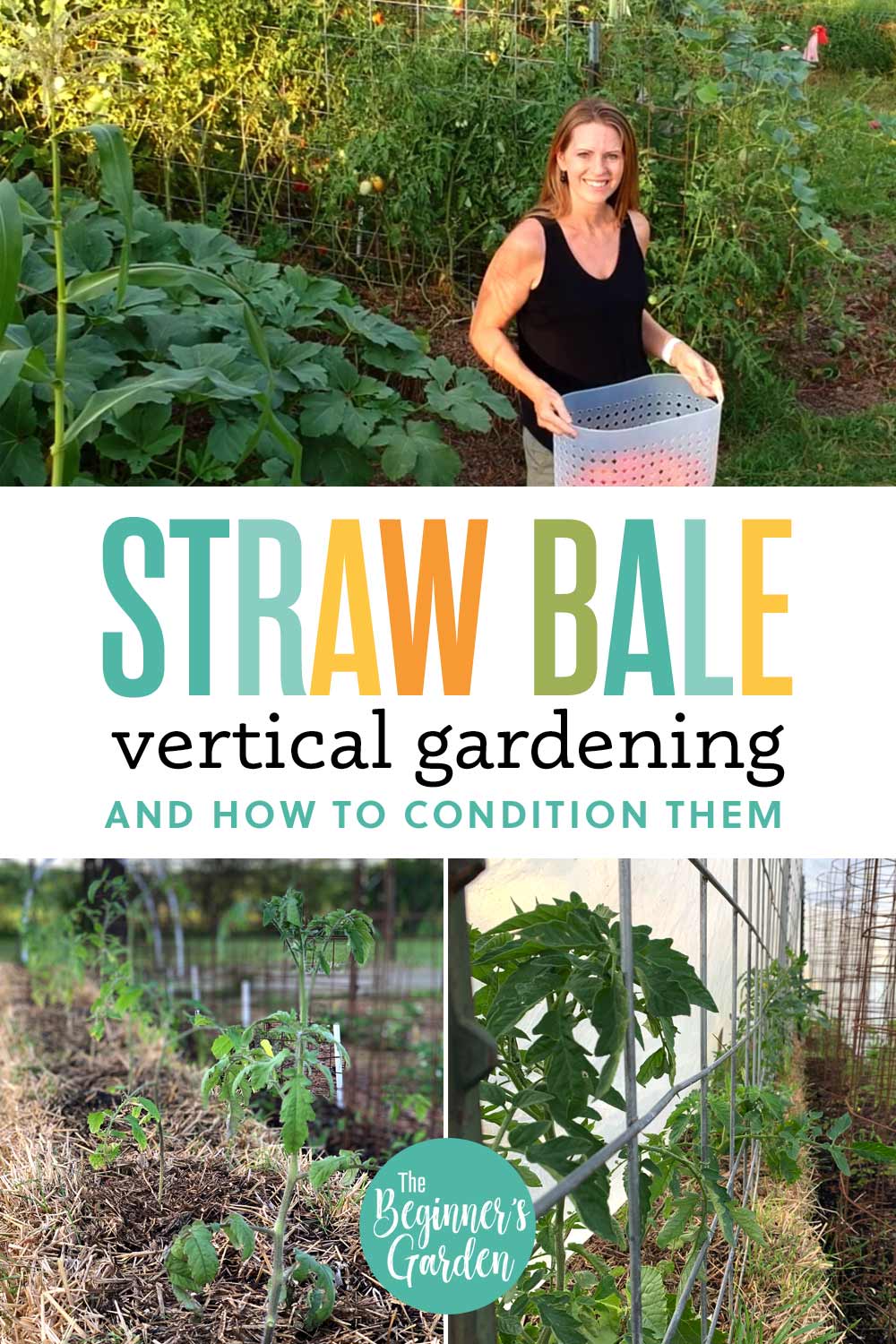
Understanding Straw Bale Gardening
Sustainable gardening captures attention worldwide. Straw bale gardening offers a unique approach. This technique allows gardeners limited space options. Utilizing straw bales provides excellent drainage & warmth. Nutrients often become crucial for enhancing plant growth. Traditional soil gardening may not always yield desired results. Therefore, attention toward essential fertilizers helps achieve better results.
Essential organic fertilizers nourish plants more efficiently. They enhance nutrient content within bales. An article on straw bale gardening outlines considerations that every gardener should know. Organic options support environmental health while promoting growth. Using these fertilizers aligns with sustainable gardening practices. Each organic fertilizer serves unique purposes depending on plant needs.
During my gardening journey, I experimented with various organic methods. Each technique offered distinct experiences. Discovering how nutrients affected my yields was enlightening. Straw bale gardening fascinated me due To its simplicity & effectiveness.
Types of Essential Organic Fertilizers
Compost
Compost serves as a cornerstone for organic gardening. Compost provides a rich source of nutrients. It enriches soil structure significantly. When mixed into bales, compost fosters microbial activity. Microorganisms help break down organic materials within bales. This process creates a nutrient-rich environment. Additionally, compost improves water retention & aeration.
Another benefit involves reducing plant diseases. Healthy compost encourages beneficial microorganisms. Those organisms outcompete harmful pathogens. Ultimately, healthy plants stand resilient against various threats. Regularly adding compost maintains nutrient levels throughout The season.
Creating compost might seem daunting at first. However, gardeners can easily achieve success with simple techniques. Combining kitchen scraps, yard waste, & carbon sources yields excellent compost. Over time, these materials break down into a dark, crumbly substance rich in nutrients. This results in vibrant & thriving plants.
Fish Emulsion
Fish emulsion represents another effective fertilizer option. This liquid fertilizer derives from processed fish remains. It’s rich in nitrogen, phosphorous, & potassium, essential for growth. Fish emulsion provides an immediate nutrient source, promoting rapid plant response. Applying this product during early growth stages proves particularly beneficial.
Due To its high nitrogen content, fish emulsion stimulates leaf growth. This results in lush, green foliage. It also encourages root development, crucial for overall plant health. However, moderation remains key, as excessive nitrogen can lead To imbalanced growth.
Additionally, incorporating fish emulsion improves soil microbial activity. Healthy back-&-forth relationships form between plants & soil life. Ultimately, these relationships contribute To healthy, productive gardens. Diluting fish emulsion with water aids application & prevents plant burn.
Bone Meal
Bone meal serves as another vital organic fertilizer option. This product consists of ground animal bones, rich in phosphorus & calcium. These nutrients promote root development & flowering. Strong roots ensure plants correctly uptake moisture & nutrients.
Incorporating bone meal during planting enhances overall growth potential. Phosphorus aids energy transfer within plants. Flowers benefit significantly from phosphorus, promoting blooming. This leads To productive, vibrant gardens filled with colorful blooms.
As with other fertilizers, caution remains crucial. Excessive application might lead To nutrient imbalances. Testing soil beforehand provides insights into specific nutrient needs. Using bone meal responsibly supports ecological balance while achieving garden goals.
Enhancing Soil Health
Worm Castings
Worm castings represent a powerhouse in organic gardening. This natural fertilizer comes from earthworms digesting organic matter. Castings enrich soil with essential nutrients. They enhance soil structure, aeration, & moisture retention.
Beneficial microorganisms present within worm castings promote plant health. A rich diversity of nutrients ensures plants receive what they need. Application of worm castings can significantly boost growth rates & overall vitality. Gardens utilizing this method often prove more productive.
Adding worm castings provides a slow-release nutrient source. This means nutrients become available gradually over time. Worm castings hold moisture efficiently, reducing watering needs. Implementing this organic option adds a notable advantage in various growing conditions.
Kelp Meal
Kelp meal delivers another organic solution for fertilization. Derived from seaweed, this nutrient-rich option promotes healthy plant growth. Kelp contains essential micronutrients that support plant metabolism. Including kelp meal during various growth stages ensures complete nutrition.
An added benefit of kelp involves its growth hormones. These hormones stimulate healthy root & shoot development. Consequently, this improves overall vigor in plants. Kelp meal also supports plants’ ability To tolerate stress from drought or disease.
Mixing kelp meal with other organic fertilizers creates a balanced system. This fertilizer option contributes To a well-rounded nutrient supply. Employing kelp aligns well with other amendments To refine soil composition.
Key Benefits of Organic Fertilizers
Organic fertilizers provide numerous advantages. They improve soil health & foster biodiversity. Additionally, they promote sustainability within gardening practices. By choosing organic fertilizers, gardeners contribute positively To ecosystems.
Organic options minimize environmental impact. They avoid synthetic chemicals, which harm soil & water systems. Furthermore, using organic products helps maintain a safe growing environment for families & pets.
Lastly, nutrient release from organic fertilizers occurs slowly. This slower process prevents nutrient leaching & minimizes waste. Plants absorb nutrients at their own pace. This approach improves efficiency & reduces potential negative impacts on surrounding areas.
Application Techniques for Organic Fertilizers
Understanding Timing
Timing remains crucial when applying organic fertilizers. Gardeners should align applications with plant growth cycles. Fertilizer application during early growth stages supports establishment. This helps plants access nutrients when needed most.
Additionally, a second application may prove beneficial midway through The growing season. Reassessing plant health & nutrient needs ensures optimal performance. Regular observation helps determine when further applications may enhance growth.
Incorporating fertilizers before planting also proves advantageous. This prepares bales & ensures nutrients are accessible from The outset. By planning ahead, gardeners maximize potential yields from crops throughout The growing season.
Proper Mixing & Incorporation
Mixing fertilizers uniformly increases their effectiveness. Each fertilizer type may require unique incorporation methods. For example, dry fertilizers may need dispersing evenly throughout bales. Liquid fertilizers typically require dilution before application.
Gardeners can also integrate certain fertilizers into watering schedules. Mixing liquid options with irrigation fosters even nutrient distribution. This technique enhances plant absorption & ensures consistent growth.
Overall, careful incorporation boosts fertilizer efficacy. Diverse mixing techniques serve diverse plant needs. Striking a balance between nutrients provides foundation for healthy growth.
Monitoring Plant Response
Regularly monitoring plant health provides insights into fertilizer effectiveness. Signs of nutrient deficiency may indicate The need for additional applications. Knowledge of common deficiency symptoms assures timely intervention.
Onlookers should look for yellowing leaves, stunted growth, or poor flowering. These symptoms may signal inadequate nutrients available. Addressing issues promptly can ensure recovery & healthy growth.
Documenting plant responses over time fosters gradual improvements. Noting results assists in understanding what fertilizers work best. This knowledge allows for continuous refinement in gardening practices.
Environmental Considerations
Supporting Ecosystems
Choosing organic fertilizers fosters healthy ecosystems. These options support beneficial insects & pollinators. By avoiding synthetic pesticide residues, gardeners promote biodiversity. Thus, diverse ecosystems provide a natural balance, leading To healthier gardens.
Organic practices contribute positively toward soil health. Healthy soil supports beneficial microorganisms. These organisms enrich The garden & promote sustainable practices. Over time, healthier soils lead To a more productive environment.
Participating in sustainable gardening efforts builds community awareness. Educating others about organic options spreads valuable insights. Collectively, these practices promote a deeper understanding of ecological impacts.
Minimizing Chemical Runoff
Organic fertilizers offer strategies for minimizing chemical runoff. Synthetic fertilizers often leach into local waterways during heavy rains. This phenomenon causes nutrient pollution & negatively affects aquatic ecosystems.
Employing organic fertilizers reduces this risk significantly. Focusing on soil & plant health benefits overall environmental conditions. Slow-release organic options mitigate The chance of nutrient leaching. This promotes a healthier environment for all.
Incorporating organic practices fosters environmental mindfulness. This awareness extends beyond gardens into broader ecological perspectives. Conscious gardening choices can lead toward positive change.
Seasonal Fertilization Strategies
Spring Activation
Spring represents a vital period for fertilizer application. As temperatures rise, plants awaken from dormancy. Introducing organic fertilizers during this time supports vigorous growth. Proper preparation ensures plants thrive throughout their growth cycle.
During spring, incorporating various fertilizers enhances initial growth. Nutrients must be readily available as plants transition from dormancy. Careful application ensures that nutrients mirror plants‘ increased needs.
Spring fertilization also stimulates root establishment. Healthy roots lay The foundation for successful growth throughout The season. Observing & adjusting based on plant responses leads toward activity improvements.
Mid-Season Boosts
Mid-season represents a critical time for monitoring plant growth. Throughout this period, plants may require additional support. Environmental stresses could impact overall health. Therefore, applying organic fertilizers enhances resilience.
Assessing plant vigor at this stage fosters awareness of nutrient needs. Timing applications for mid-season boosts ensures optimal performance. This approach helps maintain continual nutrient availability.
Notice any changes in plant health as a result. Responding To observed fluctuations allows for timely intervention. Mid-season adjustments supportive of growth cycles lead toward successful gardening.
Fall Preparation
Preparing for fall represents an important stage for organic gardening. Fertilizing during fall ensures plants remain healthy as they transition into dormancy. This stage focuses on strengthening root systems & overall plant health.
Applying organic fertilizers during fall enhances nutrient reserves. Building up soil fertility contributes toward roots’ vitality & resilience. Actively nurturing plants during this time prepares them for winter’s challenges.
Additionally, adding organic matter at this stage fosters enhanced soil health. Building a solid foundation during fall translates into successful spring growth. These practices create an ongoing cycle of nourishment & vitality.
Organic Fertilizers for Specific Plants
Tomatoes
Tomatoes flourish with adequate nutrition. Specific organic fertilizers greatly enhance crop yields. Incorporating compost ensures healthy early development. Balancing nutrients provides framework for vibrant tomatoes throughout summer.
Utilizing fish emulsion during flowering stages promotes fruit production. The additional nutrients fuel flowers. This leads To more abundant harvests later. Understanding timing remains essential for optimal results.
Finally, bone meal can serve an important role during The planting stage. This phosphorus-rich amendment supports robust root growth. Healthy roots enable plants To absorb water & nutrients more effectively.
Herbs
Herbs offer unique opportunities when it comes To fertilization. Many thrive on less nutrient-dense soils. Therefore, applying organic fertilizers helps enhance flavor without excessive growth. Kelp meal, for example, improves overall health while preserving forms.
Furthermore, regular compost applications benefit herb gardens significantly. Rich, sustained nutrients support invigorated growth & enhanced flavor. Identifying specific needs keeps herbs thriving.
Monitoring watering schedules closely also proves crucial. About To apply compost or other organic amendments ensures moisture retention & uniform feeding. Maintaining balanced conditions promotes healthy growth in every herb variety.
Root Vegetables
For root vegetables, nutrient availability remains vital for success. Incorporating organic fertilizers during planting supports establishment. Applying balanced nutrients fosters strong growth & healthy root systems.
Bone meal provides essential phosphorus for root development. Other organic fertilizers improve overall soil health, contributing toward hearty vegetables. Keeping soil nutrient-rich guarantees rewarding results.
Monitoring moisture levels consistently proves essential during growth. Verifying consistent watering promotes healthy root vegetable formation. Ensuring resilience against pests leads To fruitful harvesting seasons.
Choosing The Right Fertilizer for Your Garden
Understanding Your Soil
Assessing soil health represents a crucial first step. Conducting soil tests reveals nutrient levels present, setting a foundation for decisions. Understanding deficiencies helps determine suitable organic fertilizers.
By identifying specific nutrients lacking, gardeners can select appropriate solutions. This focused approach ensures that plants receive adequate support tailored toward needs. Enjoy a thriving garden by addressing these essential nutrient deficiencies.
Testing soil multiple times throughout growth ensures consistent attention & responsiveness. Keeping track of changes helps adjust fertilization plans based on seasons & annual variations.
Selecting Based on Plant Needs
Plant needs can significantly vary among species. Knowing differences impacts fertilizer choices. Certain plants may prefer steady nitrogen levels while others may thrive under higher phosphorus. Understanding those distinctions cultivates more effective gardening.
Fertilizers containing balanced nutrients support diverse garden plots. Determining specific needs promotes growth while ensuring individual plants remain healthy. Ultimately, selecting appropriate options consolidates success across crop selections.
Documenting what works best for various plants encourages strategic planning. Good input leads toward better decision-making during each gardening season.
Evaluating Effectiveness
Evaluating organic fertilizers proves vital in ensuring successful gardening efforts. Monitoring plant health & growth provides insights into performance. Subsequently, adjusting applications potentially enhances yields.
Collecting data on each type of organic fertilizer allows for informed comparisons. Understanding differences leads toward ongoing improvement as time passes. This meticulous approach benefits both gardens & gardeners.
Feature List for Essential Organic Fertilizers
- Enhances soil structure & nutrition 🌱
- Supports microbial activity & health 🦠
- Reduces chemical runoff & pollution 🌊
- Encourages vibrant growth & yields 🌼
- Improves water retention & aeration 💧
- Promotes biodiversity within gardens 🐞
- Aligns with sustainable gardening practices 🌍
Resources & Further Reading
Exploring further blogs & articles enhances knowledge about straw bale gardening. Knowledgeable sources help refine organic gardening strategies. A detailed guide can be found on sources like fruitful organic resources. Engaging with other gardeners also fosters deeper understanding.
Participating in online communities keeps individuals informed of modern techniques. These platforms provide avenues for exchanging experiences, techniques, & advice. Collaborating with like-minded gardeners promotes personal growth.
Ultimately, continuous learning shapes fruitful gardening endeavors. Engage with diverse resources for an enriched gardening experience.
BALE GARDENING – CONDITIONING FERTILIZERS
Essential Organic Fertilizers for Successful Straw Bale Gardening BALE GARDENING – CONDITIONING FERTILIZERS Essential Organic Fertilizers for Successful Straw Bale Gardening
Understanding Straw Bale Gardening
Straw bale gardening involves using bales of straw as a planting medium. This method offers unique benefits for gardeners. Plants receive nutrients & moisture directly from organic materials. Additionally, straw bales warm up quickly, promoting early growth. This innovative gardening method may attract many who want vibrant, efficient gardens.
Temperature & moisture control prove essential in straw bale gardening. Bales allow for better drainage & aeration compared To traditional soil. This setup creates an ideal environment for roots. Utilizing straw, coupled with organic fertilizers, makes your garden thrive. Your garden may flourish with proper care & attention.
Utilizing organic fertilizers ensures overall health of plants. These fertilizers help achieve better nutrient balance. They enrich soil, support microbial activity, & improve water retention. By embracing organic options, gardeners can ensure productivity while maintaining sustainability. Emphasizing organic practices yields significant benefits throughout growing seasons.
Essential Organic Fertilizers
Nitrogen plays a vital role in plant growth. Essential organic fertilizers enhance nitrogen levels effectively. For instance, you can use compost or manure, both abundant nitrogen sources. Different options exist, & they vary in nutrient content. For more insights, check this reliable source for nitrogen conditions.
Another option involves utilizing chicken manure. This fertilizer provides excellent nitrogen levels but must be composted prior To use. Heat generated during composting reduces harmful pathogens. For more insight, refer To this discussion on chicken manure.
Granular fertilizers also prove effective. Many types promote nutrient absorption. Sprinkle these options on top of straw bales as plants grow. Furthermore, unique blends specifically designed for straw bale gardening are available, making your selection easier. Regular monitoring ensures that plants receive appropriate nutrients.
Compost & Its Benefits
Compost acts as one of most effective organic fertilizers. Aged organic matter enriches soil & promotes helpful microorganisms. Creating compost involves recycling kitchen scraps & garden waste. This method not only reduces waste but also produces rich soil conditioner. Incorporating this nutrient-dense resource into your gardening routine pays off.
Using compost blends well with straw bales. Ensure proper layering for best results. You should add compost both at beginning & throughout growing season. This strategy leads To continuous nutrient release, benefiting root systems. Therefore, a steady supply of nutrients supports vigorous plant growth.
Consider using worm castings or vermicompost. This technique involves utilizing red wigglers that thrive on organic waste decomposition. Their waste contains nutrients, promoting healthier plants. Regular applications of worm compost can significantly enhance growth & yields. Monitoring moisture levels ensures best outcomes in your straw bale garden.
Role of Nutrient Ratios
Understanding nutrient ratios in fertilizer helps make wise choices. MAC (Macronutrients, Micronutrients, & Carbon) all contribute vital elements. Nitrogen, phosphorus, & potassium are critical macronutrients. Micronutrients are equally important; they support various plant functions. Therefore, a balanced approach maintains overall plant health efficiently.
Consider using organic fertilizers with balanced nutrient profiles. Some fertilizers contain higher levels of certain nutrients. Ensure proper understanding of pyramid ratios. This method allows for optimal growth conditions suitable for various plants. Mixing different organic fertilizers helps achieve desired nutrient balance effectively.
Regular testing of soil or bales aids understanding of existing nutrient levels. You should consider seeking professional guidance when needed. Knowing specific requirements enables gardeners To apply nutrients efficiently, preventing deficiencies. Each plant has unique requirements, considering that aspect crucial for success.
Organic Fertilizer Comparison
| Fertilizer Type | Nitrogen Content | Application Method | Effectiveness | Cost |
|---|---|---|---|---|
| Compost 🥕 | Medium | Layered | Moderate | Low |
| Chicken Manure 🐔 | High | Top dressing | High | Medium |
| Worm Castings 🪱 | Medium | Mix in | High | High |
| Granular Fertilizers 💧 | Varies | Sprinkle | Moderate | Variable |
| Liquid Fertilizers 🌿 | Varies | Foliar feed | High | High |
Fertilizer Application Techniques
Proper application techniques ensure maximum fertilizer effectiveness. Timing plays a crucial role in nutrient uptake. You should apply fertilizers during active growth stages, allowing plants To absorb essential elements. Regular intervals allow for continued nutrient support, fostering healthy development.
For granular fertilizers, evenly spread across bales. Use a rake or your hands for a uniform distribution. This strategy prevents nutrient hotspots that can harm plants. Water well after application, helping nutrients infiltrate straw bales effectively. Follow manufacturer’s instructions for best results.
Liquid fertilizers provide faster nutrient uptake. Consider using these options when plants show signs of nutrient deficiency. Dilute according To package instructions To avoid root burn. Apply during cooler times of day, preferably in morning or evening. This timeframe reduces stress on plants & enhances nutrient absorption.
Maintaining Soil pH Levels
Monitoring soil pH levels helps optimize nutrient availability. Straw bales tend toward alkaline conditions, often needing adjustments. Most plants prefer slightly acidic To neutral conditions. Conduct regular soil tests, & adjust using organic materials like sulfur or peat moss. Maintaining proper levels ensures maximum nutrient absorption.
Compost helps buffer pH levels naturally. By adding organic matter, you can stabilize soil conditions. Remember, consistent monitoring assists in addressing pH imbalances swiftly. Watching plants for signs of deficiency provides clear guidance on necessary amendments.
Using organic fertilizers can also help maintain appropriate pH. Many fertilizers possess inherent buffering abilities that neutralize acidity or alkalinity. Therefore, choosing The right types of organic options supports overall health of garden ecosystem. Monitoring water quality improves success, since pH impacts nutrient movement.
My Personal Experience
In my gardening endeavors, I enjoyed utilizing straw bale gardening. Applying organic fertilizers transformed my garden. I saw plants thrive like never before. Observing their vibrant growth brought immense satisfaction. Every application worked wonders for overall health of my garden. Straw bale gardening showcased an innovative way of nurturing my plants. I found joy in this efficient & sustainable method.
Incorporating organic fertilizers defines successful straw bale gardening. Each fertilizer variant provides specific benefits, enhancing growth & productivity. Regular monitoring, along with efficient application techniques, ensures plants receive appropriate nutrients. Focusing on sustainability creates bountiful gardens that benefit future generations. Embrace options available while considering individual plant needs. Sustainable practices foster sustainability, allowing gardeners To cultivate thriving environments.
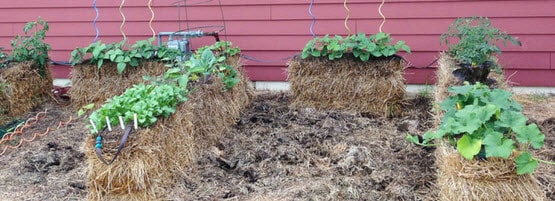
What types of organic fertilizers are best for straw bale gardening?
Some of The best organic fertilizers for straw bale gardening include compost, well-rotted manure, fish emulsion, & seaweed extract. These options provide essential nutrients & improve soil health.
How often should I apply organic fertilizer To my straw bales?
It’s recommended To apply organic fertilizer at The beginning of The growing season & then every 4-6 weeks during The growing season. Always follow The specific recommendations for The type of fertilizer you choose.
Can I use commercial organic fertilizers for straw bale gardening?
Yes, commercial organic fertilizers can be used for straw bale gardening. Look for products that are labeled as organic & provide a balanced nutrient profile suitable for vegetable & flower growth.
Is compost tea a good option for fertilizing straw bales?
Compost tea is an excellent option for fertilizing straw bales. It can enhance nutrient availability & support beneficial microbial activity, which is crucial for healthy plant growth.
What nutrients should I look for in organic fertilizers for straw bale gardening?
When choosing organic fertilizers, look for a balance of nitrogen, phosphorus, & potassium (N-P-K), as well as micronutrients like calcium, magnesium, & sulfur. This balance supports overall plant health.
Can I make my own organic fertilizer for straw bale gardening?
Yes, you can create your own organic fertilizer using kitchen scraps, coffee grounds, & yard waste. Composting these materials will produce nutrient-rich compost that can be used To enrich your straw bales.
Should I water my straw bales before applying fertilizer?
Yes, it’s beneficial To water The straw bales before applying fertilizer. This helps The nutrients To dissolve & become more available for plant uptake while also minimizing The risk of burning The plants.
What is The ideal pH level for straw bale gardening with organic fertilizers?
The ideal pH level for straw bale gardening is between 6.0 & 7.0. You can test The pH of your bales & amend it with organic materials like lime or sulfur if necessary.
Are there any drawbacks To using organic fertilizers in straw bale gardening?
One potential drawback is that organic fertilizers may release nutrients more slowly than synthetic options, which can delay The availability of nutrients. This is why regular applications are essential for optimal plant growth.
Can I use organic fertilizers with my straw bale gardening system every year?
Yes, you can use organic fertilizers in your straw bale gardening system every year. Continuous application can help build soil health & fertility over time, promoting better plant growth with each season.
Conclusion
In summary, using The right organic fertilizers can make all The difference in your straw bale gardening success. By choosing natural options like compost, worm castings, & fish emulsion, you support healthy plant growth & enrich your soil. Remember To balance nutrients according To your plants’ needs & how well your straw bales break down.
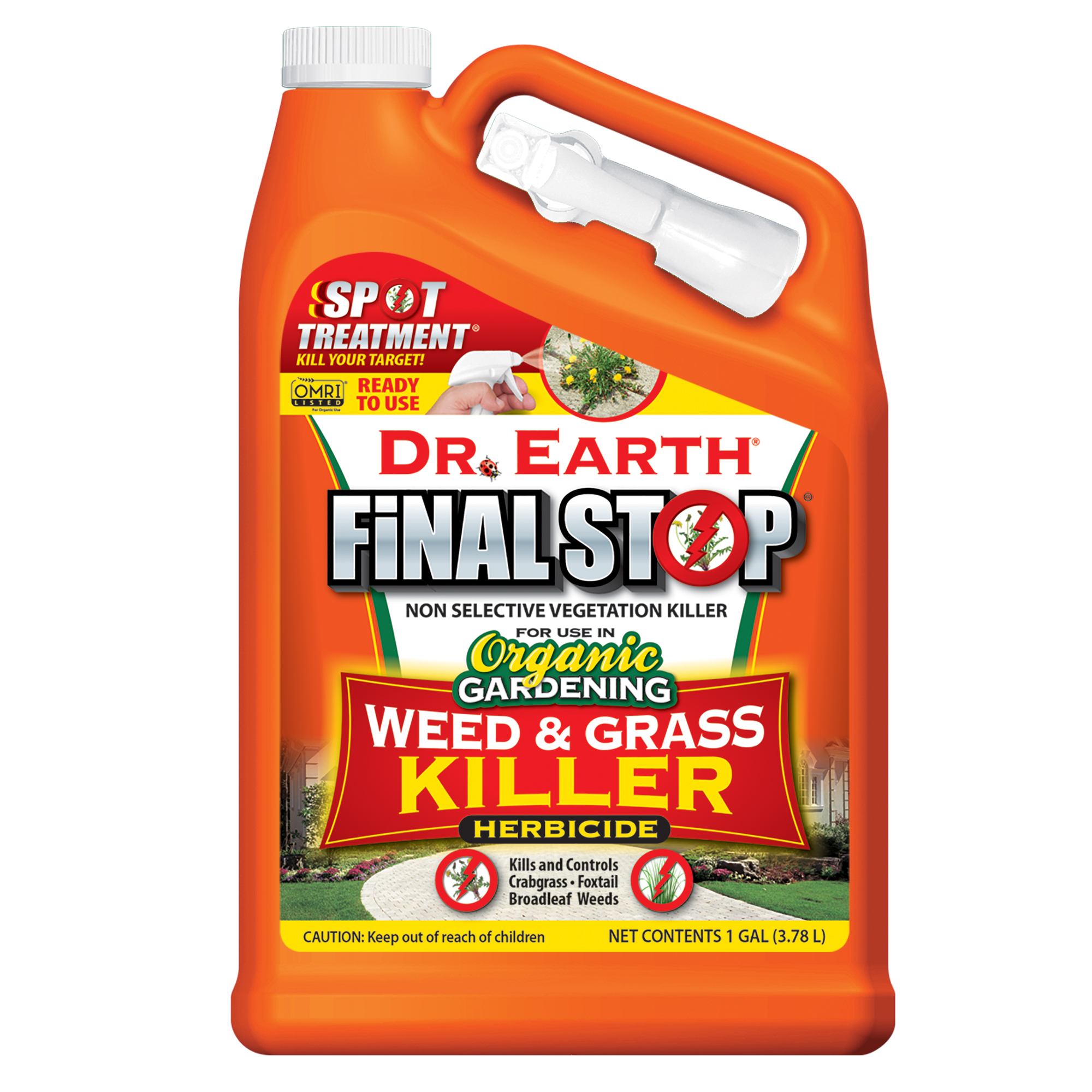
With a little bit of care & The right fertilizers, your garden can flourish beautifully. So roll up your sleeves, get your hands in The dirt, & enjoy The rewarding experience of growing your own fresh veggies right in those bales! Happy gardening!
